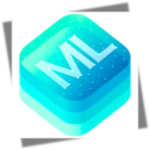The Dawn of Open Source AI
In recent years, the landscape of artificial intelligence (AI) has been dramatically transformed by the strategic decisions of leading tech giants. Among these, Meta (formerly Facebook) and Apple have taken monumental steps by embracing open-source principles. This shift marks a significant departure from the traditional, closed-source models that have dominated the industry for years. The implications of these moves extend far beyond the immediate tech community, potentially reshaping the entire AI ecosystem. This article delves into the profound impact of Meta and Apple’s open-source initiatives and how these actions are set to redefine AI’s future.
Meta’s Open Source Vision
Meta has long been a proponent of open-source software, and its recent focus on AI is no exception. The company’s open-source projects, such as PyTorch, have become cornerstones in AI research and development. PyTorch, which Meta released under an open-source license, has quickly garnered widespread adoption due to its flexibility and ease of use.
PyTorch: A Game Changer in AI Research
The AI community recognizes PyTorch for its dynamic computational graph and user-friendly architecture. By making PyTorch open-source, Meta has not only fostered a collaborative environment but has also accelerated innovation. Researchers and developers around the world can contribute to its evolution, leading to rapid advancements and more robust AI models. The open-source nature of PyTorch ensures that improvements and innovations are shared across the community, promoting a more inclusive and diverse research landscape.
Partnership and Creativity: The Advantages of Transparency
Meta’s commitment to open-source extends beyond PyTorch. The company actively supports various AI research initiatives and provides tools and frameworks that are accessible to a global audience. By fostering cooperation between academics, developers, and enthusiasts, this strategy propels innovation at a never-before-seen rate. The open-source model allows for transparency in AI research, fostering trust and enabling more effective problem-solving through collective expertise.
Apple’s Strategic Shift: Embracing Open Source
Apple’s foray into open-source AI is relatively new but equally significant. Traditionally known for its proprietary technology and closed ecosystems, Apple’s recent decisions indicate a strategic pivot towards greater openness.
CoreML and Open-Source Integration
Apple’s CoreML framework, which allows developers to integrate machine learning models into their applications, has been partially open-sourced. This move aligns with Apple’s goal of enhancing machine learning capabilities across its ecosystem while maintaining control over core technologies. By providing access to certain components and tools, Apple enables developers to build more advanced and customized AI solutions, fostering a more dynamic app development environment.
Impact on the AI Ecosystem
Apple’s approach to open-source AI reflects a broader trend within the tech industry towards greater transparency and collaboration. By opening up parts of its technology stack, Apple is not only encouraging innovation but also setting new standards for how AI tools and frameworks can be developed and utilized. This shift is likely to influence other tech giants, pushing them to reconsider their own strategies regarding open-source contributions and collaborations.
The Competitive Landscape: Accelerating Technological Advancements
The open-source initiatives by Meta and Apple have far-reaching implications for the AI industry. These moves are expected to
Enhance Competitive Dynamics
By making their AI technologies open-source, Meta and Apple are setting new benchmarks for competition. The increased transparency and accessibility foster a more competitive environment, where emerging players and established companies alike can leverage these resources to advance their AI capabilities. This competitive landscape drives innovation and pushes the boundaries of what is possible in AI research and development.
Accelerate Technological Advancements
Open-source projects inherently promote faster technological advancements. The collaborative nature of open-source development allows for rapid iteration and improvement of AI models. Meta and Apple’s commitment to open source ensures that cutting-edge technologies are continuously refined and enhanced, accelerating progress in AI applications across various domains.
Promote Inclusive Innovation
The open-source approach democratizes the use of cutting-edge AI resources and technologies. Researchers, developers, and enthusiasts from diverse backgrounds can contribute to and benefit from these technologies, promoting a more inclusive and diverse innovation ecosystem. Because of its inclusivity, AI can handle a greater range of problems and possibilities with a wider range of applications and solutions.
The open-source revolutions spearheaded by Meta and Apple signify a transformative shift in the AI industry. By embracing openness and transparency, these tech giants are not only accelerating technological advancements but also fostering a more inclusive and competitive landscape. As the open-source model continues to evolve, it is likely to shape the future of AI, driving innovation and unlocking new possibilities for researchers, developers, and users alike.



1 thought on “AI: Meta and Apple’s Open Source Revolution”